South Florida Attorneys Beat Back Criminal Contempt Charges Against Them
Tromberg Law Group attorneys Yacenda Hudson and Amina McNeil faced charges of indirect criminal contempt, stemming from their representation of major mortgage lender Ditech in a foreclosure suit in Miami-Dade Circuit Court.
August 17, 2018 at 01:33 PM
6 minute read
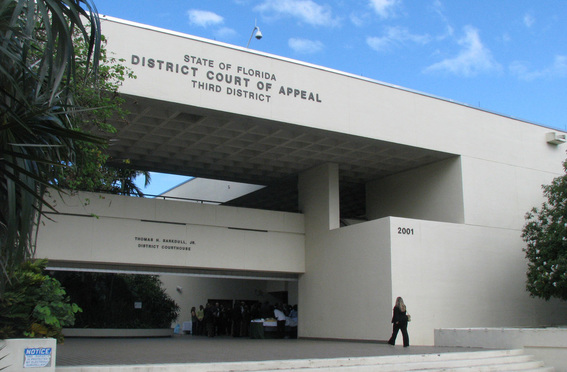 Third District Court of Appeal in Miami. (Photo: J. Albert Diaz/ALM)
Third District Court of Appeal in Miami. (Photo: J. Albert Diaz/ALM)
Two South Florida attorneys who had been accused of indirect criminal contempt will no longer have to address these charges in a trial court.
In an Aug. 15 order, the Third District Court of Appeal granted a writ of prohibition to Tromberg Law Group attorneys Yacenda Hudson and Amina McNeil.
Click here to read the ruling
Hudson and McNeil were facing criminal charges stemming from issues that arose while representing mortgage lender Ditech Financial LLC in a civil foreclosure case.
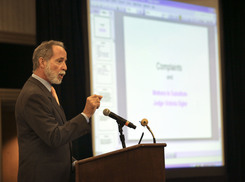 Judge Pedro Echarte. Photo: CandaceWest.com
Judge Pedro Echarte. Photo: CandaceWest.comThe central issue at hand was whether the attorneys had violated a discovery order by Miami-Dade Circuit Judge Pedro Echarte Jr. during the underlying case. The judge had ordered Ditech, represented by McNeil, to produce training manuals illustrating the company's process of ensuring that each loan transferred between servicers accurately reflected the homeowner's balance and whether that borrower had paid off the mortgage or not.
The company did not provide the documents in a timely manner, causing Echarte to grow frustrated with Ditech and McNeil. Hudson had not previously been involved with the case but had accompanied McNeil to a controversial midnight deposition in July 2017. Ditech was supposed to have presented the materials at that meeting. It did not.
 Loan Servicer's Attorneys Face Criminal Contempt Arraignment in Miami
Loan Servicer's Attorneys Face Criminal Contempt Arraignment in Miami
Several contentious hearings ensued over the submission of Ditech's training documents into evidence. When they were ultimately submitted in November 2017, it was discovered that their contents did not address Ditech's accuracy-checking process, despite testimonial claiming that they did.
Echarte, now incensed, entered an order to show cause, proposed by opposing counsel Bruce Jacobs, managing partner at Jacobs Legal. The order showed the judge contemplating holding McNeil, Hudson and Ditech in indirect criminal contempt for failing to produce training materials detailing Ditech's accuracy checking process.
But the appellate court reversed. In its ruling overturning the show cause order, the judicial panel not only wrote that Hudson and McNeil could not be held responsible for their client's failure to produce the material requested, but that there was no precedent showing that their actions constituted a criminal act.
“At most, Ditech violated the June 29, 2017 Calendar Call Order by failing to produce the Power Point presentation at the cancelled, midnight deposition,” the ruling reads. “The respondents have not cited, nor have we found, any cases holding a party's attorney in indirect criminal contempt for the party's violation of a discovery order under circumstances such as are present here.”
'Never a Good Idea'
The appeals court found the charges against McNeil and Hudson represented an undue escalation of the initial foreclosure case.
“Indeed, what began as a routine mortgage foreclosure action based on the borrower's alleged default of a September 2010 loan modification agreement has seemingly devolved into a heated dispute over the legitimacy of Ditech's loan boarding process based on Ditech's alleged violation of a simple discovery order to produce training material upon which Ditech argues it will not even rely at trial,” read the unanimous and unsigned opinion by Third DCA Chief Judge Leslie B. Rothenberg and Judges Richard J. Suarez and Edwin A. Scales III. “The petitioners find themselves caught in the middle of this dispute, facing indirect criminal contempt sanctions — and even jail time— despite there being no evidence that the petitioners are at all responsible for violating the discovery order.”
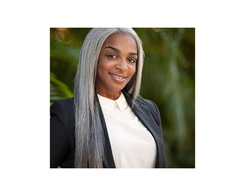 Zena X. Duncan, of the Law Office of Zena X. Duncan. Courtesy photo
Zena X. Duncan, of the Law Office of Zena X. Duncan. Courtesy photoZena X. Duncan of the Law Office of Zena X. Duncan in Miami represented Hudson in the case, and says she feels vindicated by the court's ruling.
“Good always prevails over malintent. The Third District's opinion corroborates everything I have been arguing from the first day of this fiasco,” Duncan told the Daily Business Review. “It expressly demonstrates that my client never did anything wrong and was unfairly dragged into attorney Bruce Jacobs' personal vendetta against banks without any regard for damages to the innocent along the way.”
“Jacobs unfairly tarnished my client's stellar professional reputation and caused her undue stress and emotional turmoil,” Duncan said. “I am elated that the appellate court has saw fit to do what the lower court failed to and my client can begin to rebuild her outstanding reputation in the legal community.”
McNeil was represented by David Weinstein, partner at Miami-based firm Hinshaw & Culbertson. Weinstein expressed a similar sentiment when asked about the outcome of the case.
“Unfortunately prior to this ruling a lot was written about what had happened in the lower court that painted a very… unpleasant picture of both Mr. McNeil and Ms. Hudson that was not true and has caused them a lot of damage to their reputation,” Weinstein said. “It was a situation where one set of circumstances led to another, and the full and complete picture was never really painted at any stage of the proceedings until it got up to the Third District Court of Appeals.”
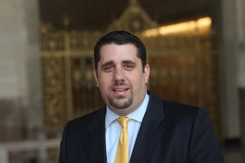 Bruce Jacobs, with Jacobs Keeley. Photo: J. Albert Diaz/ALM
Bruce Jacobs, with Jacobs Keeley. Photo: J. Albert Diaz/ALMWhen reached for comment Jacobs expressed more concern with Ditech's conduct than that of McNeil and Hudson.
“This was always about Ditech training its witnesses to commit perjury in foreclosures,” Jacobs said. “The Third DCA never mentioned this outrageous fact once in its 35-page opinion. Judge Echarte ordered production of manuals to verify whether Ditech's boarding process audits prior servicer's records. Ditech defied his order for months. Never a good idea.”
Jacobs added that Echarte acted “on his own motion” which, under Florida Rules of Criminal Procedure 3.840, allows a judge to start criminal contempt proceedings without need for sworn evidence. He said, “The Third DCA reversed Judge Echarte without mentioning anything about this systemic perjury problem.”
Read the Third DCA's ruling here:
This content has been archived. It is available through our partners, LexisNexis® and Bloomberg Law.
To view this content, please continue to their sites.
Not a Lexis Subscriber?
Subscribe Now
Not a Bloomberg Law Subscriber?
Subscribe Now
NOT FOR REPRINT
© 2025 ALM Global, LLC, All Rights Reserved. Request academic re-use from www.copyright.com. All other uses, submit a request to [email protected]. For more information visit Asset & Logo Licensing.
You Might Like
View All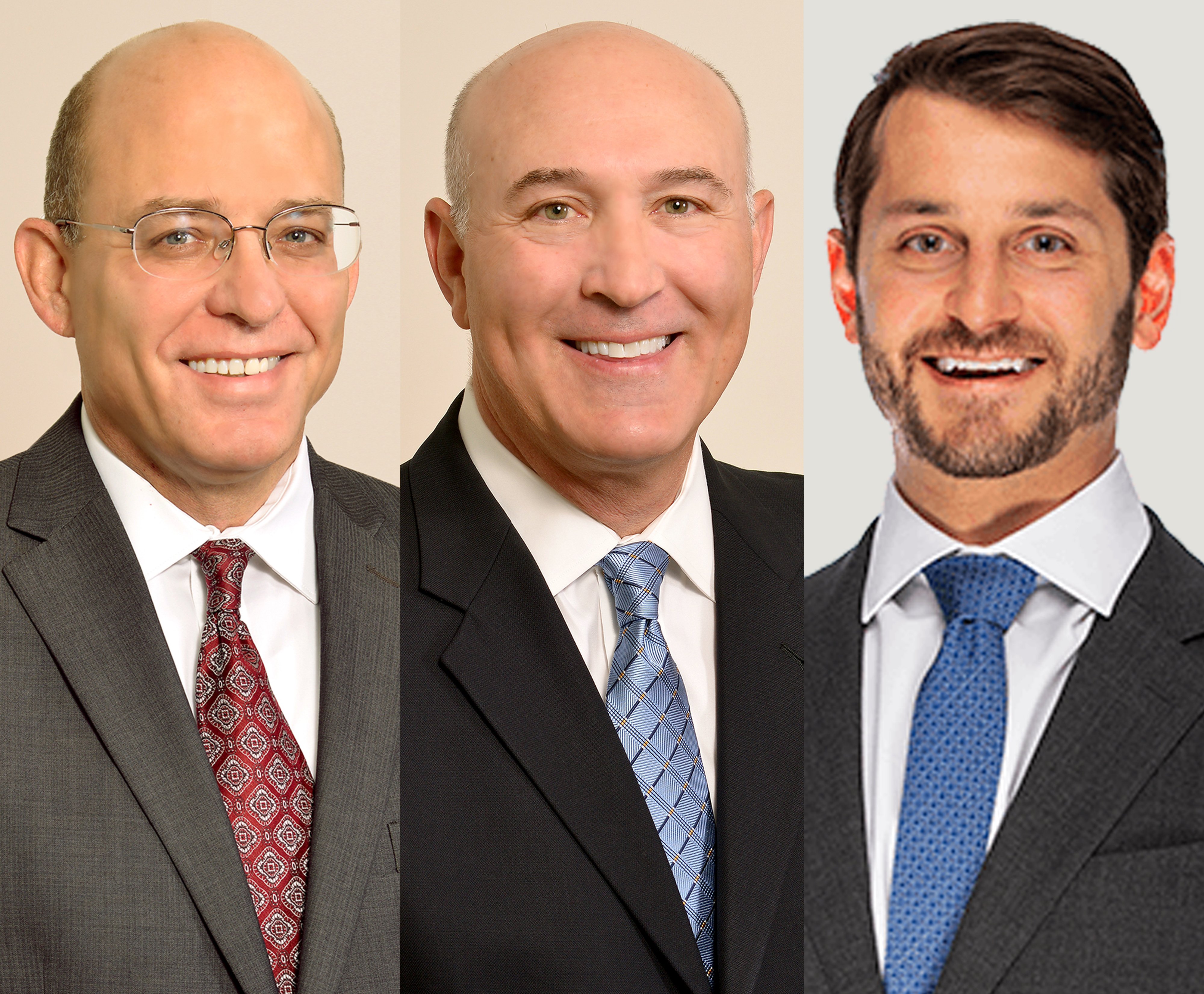
Million-Dollar Verdict: Broward Jury Sides With Small Business

2,000 Docket Entries: Complex South Florida Dispute Sets Precedent

Miami-Dade Litigation Over $1.7 Million Brazilian Sugar Deal Faces Turning Point
3 minute read
Meta agrees to pay $25 million to settle lawsuit from Trump after Jan. 6 suspension
4 minute readTrending Stories
- 1Meta’s New Content Guidelines May Result in Increased Defamation Lawsuits Among Users
- 2State Court Rejects Uber's Attempt to Move IP Suit to Latin America
- 3Florida Supreme Court Disciplined 17 Attorneys
- 4Sex Work at Wyndham? Judge Allows 10th Human-Trafficking Suit
- 5A&O Shearman To Lose Another 5 Lawyers
Who Got The Work
J. Brugh Lower of Gibbons has entered an appearance for industrial equipment supplier Devco Corporation in a pending trademark infringement lawsuit. The suit, accusing the defendant of selling knock-off Graco products, was filed Dec. 18 in New Jersey District Court by Rivkin Radler on behalf of Graco Inc. and Graco Minnesota. The case, assigned to U.S. District Judge Zahid N. Quraishi, is 3:24-cv-11294, Graco Inc. et al v. Devco Corporation.
Who Got The Work
Rebecca Maller-Stein and Kent A. Yalowitz of Arnold & Porter Kaye Scholer have entered their appearances for Hanaco Venture Capital and its executives, Lior Prosor and David Frankel, in a pending securities lawsuit. The action, filed on Dec. 24 in New York Southern District Court by Zell, Aron & Co. on behalf of Goldeneye Advisors, accuses the defendants of negligently and fraudulently managing the plaintiff's $1 million investment. The case, assigned to U.S. District Judge Vernon S. Broderick, is 1:24-cv-09918, Goldeneye Advisors, LLC v. Hanaco Venture Capital, Ltd. et al.
Who Got The Work
Attorneys from A&O Shearman has stepped in as defense counsel for Toronto-Dominion Bank and other defendants in a pending securities class action. The suit, filed Dec. 11 in New York Southern District Court by Bleichmar Fonti & Auld, accuses the defendants of concealing the bank's 'pervasive' deficiencies in regards to its compliance with the Bank Secrecy Act and the quality of its anti-money laundering controls. The case, assigned to U.S. District Judge Arun Subramanian, is 1:24-cv-09445, Gonzalez v. The Toronto-Dominion Bank et al.
Who Got The Work
Crown Castle International, a Pennsylvania company providing shared communications infrastructure, has turned to Luke D. Wolf of Gordon Rees Scully Mansukhani to fend off a pending breach-of-contract lawsuit. The court action, filed Nov. 25 in Michigan Eastern District Court by Hooper Hathaway PC on behalf of The Town Residences LLC, accuses Crown Castle of failing to transfer approximately $30,000 in utility payments from T-Mobile in breach of a roof-top lease and assignment agreement. The case, assigned to U.S. District Judge Susan K. Declercq, is 2:24-cv-13131, The Town Residences LLC v. T-Mobile US, Inc. et al.
Who Got The Work
Wilfred P. Coronato and Daniel M. Schwartz of McCarter & English have stepped in as defense counsel to Electrolux Home Products Inc. in a pending product liability lawsuit. The court action, filed Nov. 26 in New York Eastern District Court by Poulos Lopiccolo PC and Nagel Rice LLP on behalf of David Stern, alleges that the defendant's refrigerators’ drawers and shelving repeatedly break and fall apart within months after purchase. The case, assigned to U.S. District Judge Joan M. Azrack, is 2:24-cv-08204, Stern v. Electrolux Home Products, Inc.
Featured Firms
Law Offices of Gary Martin Hays & Associates, P.C.
(470) 294-1674
Law Offices of Mark E. Salomone
(857) 444-6468
Smith & Hassler
(713) 739-1250






